As a powerful man in ancient Rome, Julius Caesar probably had sex with both men and women, but it was his taste in partners that threatened to ruin his reputation.
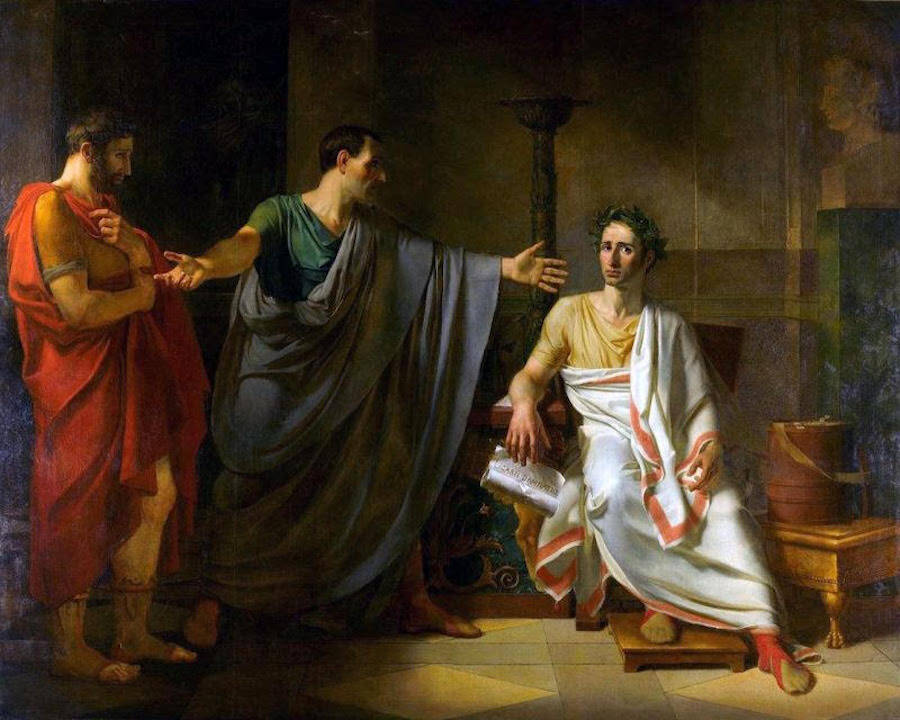
Wikimedia CommonsJulius Caesar was known for being a lover and a fighter.
Julius Caesar claimed godly blood as a descendant of Venus. His divine ancestor is often depicted in the throes of passion, entrancing suitors far and wide. Is it any wonder that her illustrious heir, a man whose last name would be a title for emperors millennia after his death, was said to have a similar sway with both sexes?
As a powerful man in ancient Rome, Julius Caesar probably had sexual experiences with both men and women. This wouldn’t have been a cause for concern among his contemporaries. Bisexuality was more or less the norm during that era.
However, it was Caesar’s taste in partners and sexual positions that scandalized Rome and threatened to cause lasting damage to his reputation.
Today, ancient Rome is often imagined as a land of promiscuity and sometimes perversion (thanks to figures like Nero and Caligula), but there were still sexual rules in Rome. And Julius Caesar was rumored to have broken several of them.
Caesar’s Early Days
In the marble palaces of power, Julius Caesar was anything but ordinary. Brilliant and ambitious as a young man, his star was clearly on the rise.
In our mind’s eye, Julius Caesar is forever a stern middle-aged man, with a halo of hair crowning an imperial bald spot. However, he was known as a young man for his foppish beauty.
According to Kelly Olson’s article “Masculinity, Appearance, and Sexuality: Dandies in Roman Antiquity,” Julius Caesar had soft white skin, dainty, elegant fingers, and plucked all unwanted hair. He was essentially a perfect symbol of lovely Roman manhood.
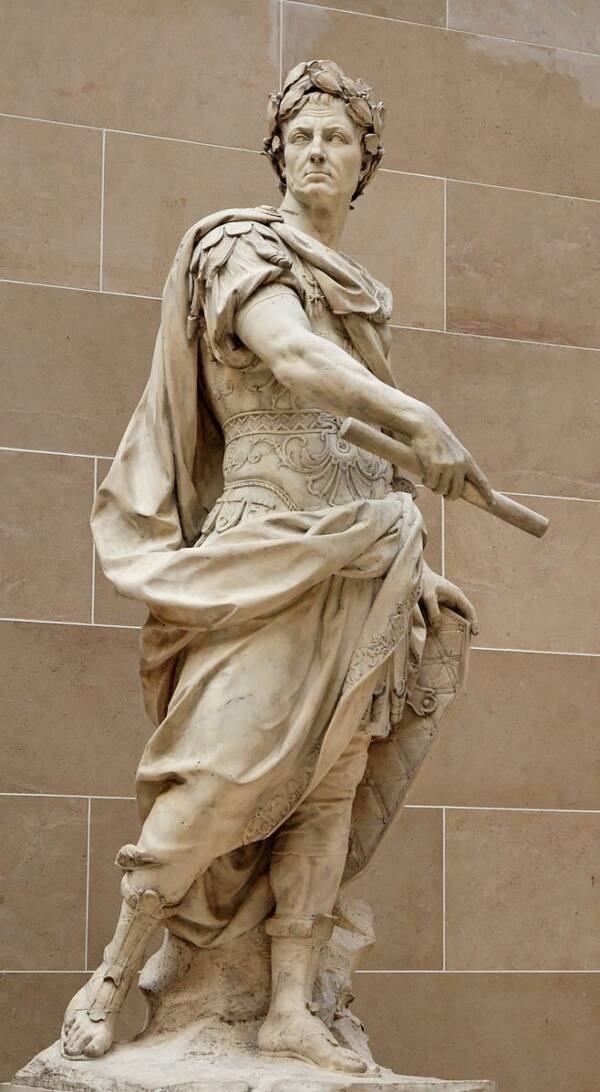
Marie-Lan Nguyen A statue of a heroic Julius Caesar.
However, one area where he wasn’t unique was his likely affairs with both sexes. Bisexual activity wasn’t rare in ancient Rome. Sometimes the upper classes even used the members of lower classes for sexual favors. But the problem was how Caesar was said to have participated in these sexual acts.
In Rome, liking men was fine. Liking to bottom, however, absolutely was not.
Caesar And Nicomedes
Perhaps the most notable of Julius Caesar’s alleged male lovers was Nicomedes, the king of Bithynia, a client kingdom of Rome in modern-day Turkey.
At age 20, Caesar served as an ambassador to Bithynia, but rumors persisted that he acted as a cupbearer to the king (a subservient position associated with passivity) during a party attended by Romans.
The rumors continued that Caesar was led into the king’s bedroom and draped on a golden couch for the older man’s pleasure.

National Museum of American HistoryA sketch of Nicomedes, Julius Caesar’s rumored lover.
Contemporary writer Cicero even noted: “The virginity of the one sprung from Venus was lost in Bithynia.”
Caesar reportedly dawdled so long in the foreign kingdom that he was even dubbed “the queen of Bithynia,” again underscoring that his rumored affair put him in the position of the receptive partner.
This was a fairly common trope of the time, hinting that an honorable Roman youth could easily be corrupted by Eastern, effeminizing influences (in this case, by being penetrated by an older, foreign king).
Curio, a contemporary statesman, decried Caesar’s episodes of adultery and impudicitia (meaning unchastity). He gave the future leader of Rome the unflattering epithet of “every woman’s man and every man’s woman.”
Power and sex were intertwined in ancient Rome, particularly in same-sex situations. As Steven DeKnight, creator of the show Spartacus, noted:
“It was pretty much accepted among the men. The difference was, it was about power. If you were of a certain position, you needed to be on top. It only worked one way. Also, the Romans would, when they conquered a people, it was very common for the men in the Roman legions to rape the other men that they had conquered. That was also a show of power and force.”
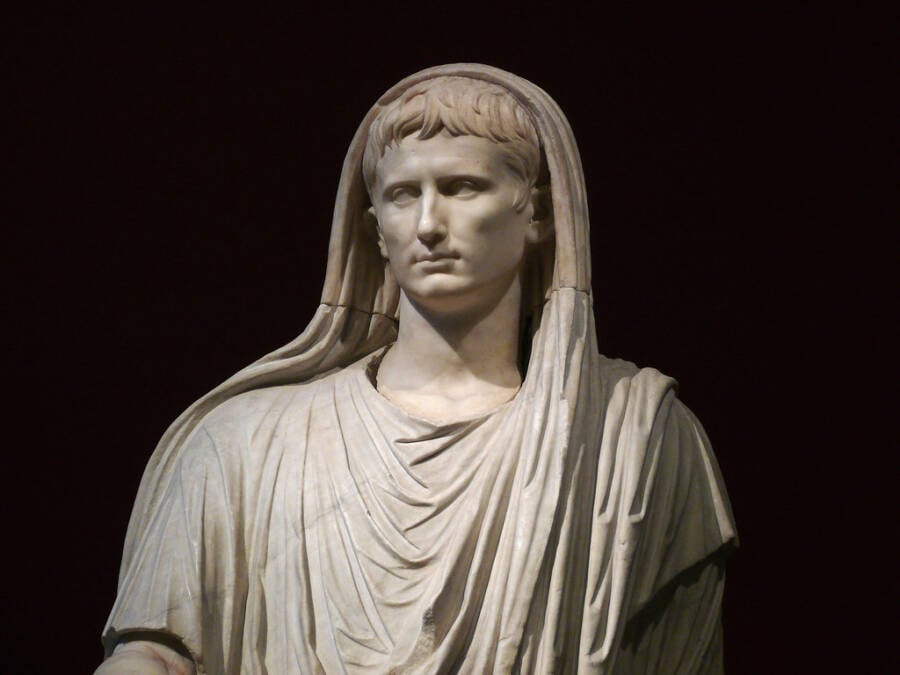
Museo Nazionale Romano – Palazzo MassimoOctavian, Caesar’s heir.
Rumors also swirled that Caesar had adopted his heir Octavian for less-than-platonic reasons. Marc Antony asserted that the reason why the future emperor found himself as heir apparent was because he gave his body to his biological granduncle, according to The Origins and Role of Same-Sex Relations in Human Societies by James Neill.
The rumors of Octavian’s sexual passivity were so pervasive that battlefields were littered with lead shot by enemy soldiers etched with the name “Octavia.” Inscriptions identifying Octavian with fellatio and sexual passivity were similarly omnipresent. This was a perception issue of the highest order for the first emperor of Rome and a blow to Julius Caesar’s social standing.
Julius Caesar’s Women
Julius Caesar was married several times, and he was faithful enough to his first wife Cornelia that he refused to divorce her. When Sulla demanded that he leave her and remarry a woman of the consul’s choosing, Caesar fled Rome in defiance.
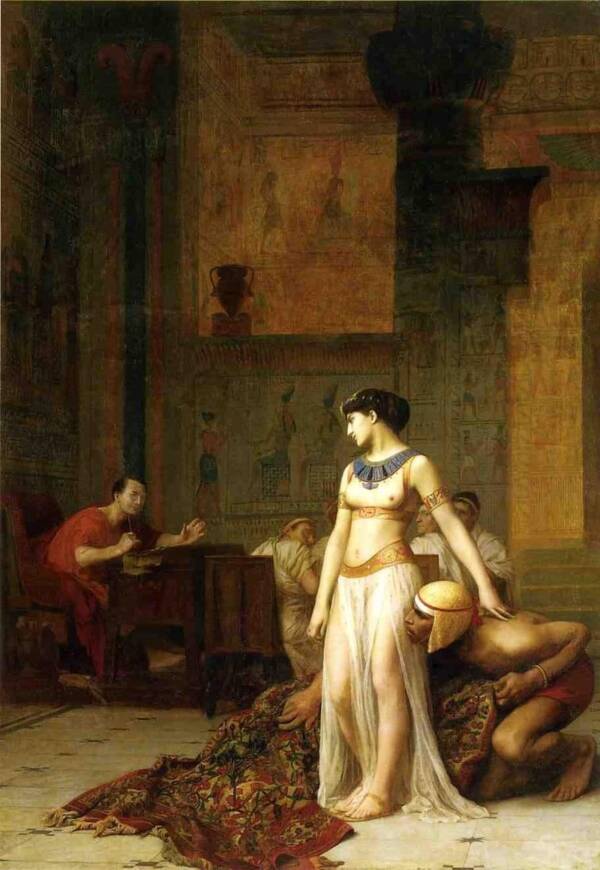
Jean-Léon Gérôme/Mezzo Mondo/Wikimedia CommonsCleopatra emerges in Caesar’s chambers.
Of course, there’s the little matter of Caesar and his affair with Cleopatra. A brilliant politician, Cleopatra charmed the older man into a romance.
When Cleopatra later gave birth to her son, the future pharaoh of Egypt, Ptolemy XV Philopator Philometor Caesar, it was rumored that Julius was the child’s father.
Cassius Dio, a later writer, recorded with some disdain: “Cleopatra… on account of the aid she had sent to [Caesar’s ally] Dolabella, was granted the right to have her son called king of Egypt; this son, whom she named Ptolemy, she pretended was her son by Caesar, and she was therefore wont to call him Caesarion.”
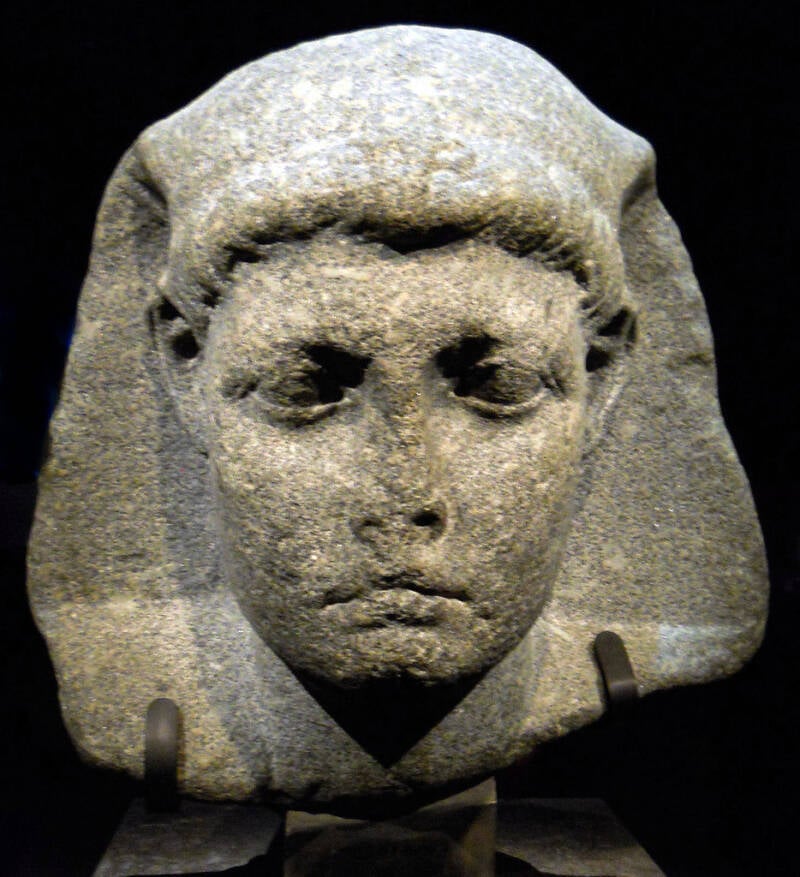
Wikimedia CommonsThis statue head is thought to represent Caesarion, the alleged child of Cleopatra VII and Julius Caesar.
Despite Cassius’ doubts, it seems Caesar may have recognized the boy as his son. Further, the damage it did to Caesar’s reputation was very real — spawning children with foreign queens was nearly as bad as being a foreign king’s submissive lover.
Sexual name-calling was par for the course in ancient Rome, but the vitriol directed toward Caesar was particularly potent. Before Julius Caesar met his fate on the Ides of March, his reported bisexual bed-hopping was continually on the tip of every Roman’s tongue.
After reading about Julius Caesar’s rumored bisexuality, check out the exact spot where archaeologists say Caesar may have invaded Britain and the story of Veleda, the German priestess that terrified Rome.





